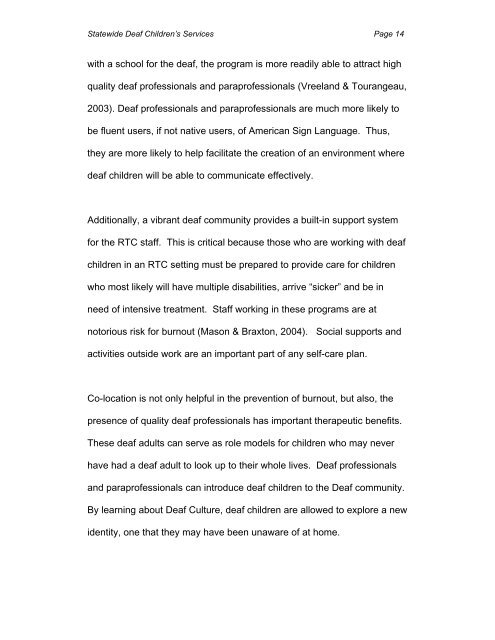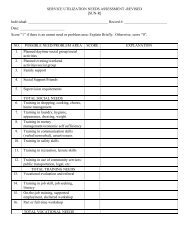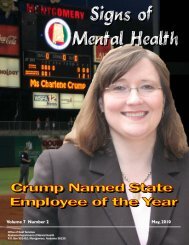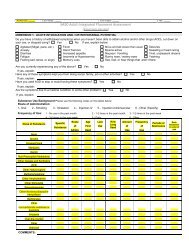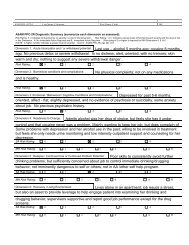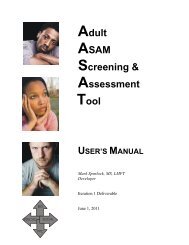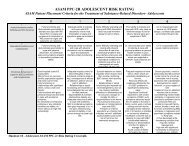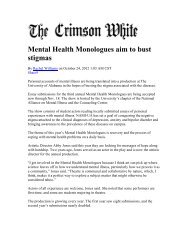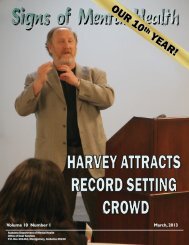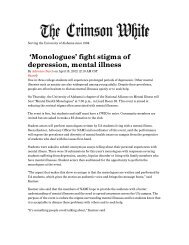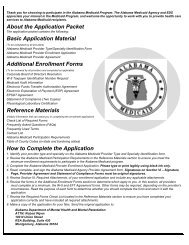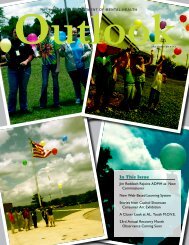Serving Severely Emotionally Disturbed Deaf Youth - Alabama ...
Serving Severely Emotionally Disturbed Deaf Youth - Alabama ...
Serving Severely Emotionally Disturbed Deaf Youth - Alabama ...
Create successful ePaper yourself
Turn your PDF publications into a flip-book with our unique Google optimized e-Paper software.
Statewide <strong>Deaf</strong> Children’s Services Page 14with a school for the deaf, the program is more readily able to attract highquality deaf professionals and paraprofessionals (Vreeland & Tourangeau,2003). <strong>Deaf</strong> professionals and paraprofessionals are much more likely tobe fluent users, if not native users, of American Sign Language. Thus,they are more likely to help facilitate the creation of an environment wheredeaf children will be able to communicate effectively.Additionally, a vibrant deaf community provides a built-in support systemfor the RTC staff. This is critical because those who are working with deafchildren in an RTC setting must be prepared to provide care for childrenwho most likely will have multiple disabilities, arrive “sicker” and be inneed of intensive treatment. Staff working in these programs are atnotorious risk for burnout (Mason & Braxton, 2004). Social supports andactivities outside work are an important part of any self-care plan.Co-location is not only helpful in the prevention of burnout, but also, thepresence of quality deaf professionals has important therapeutic benefits.These deaf adults can serve as role models for children who may neverhave had a deaf adult to look up to their whole lives. <strong>Deaf</strong> professionalsand paraprofessionals can introduce deaf children to the <strong>Deaf</strong> community.By learning about <strong>Deaf</strong> Culture, deaf children are allowed to explore a newidentity, one that they may have been unaware of at home.


